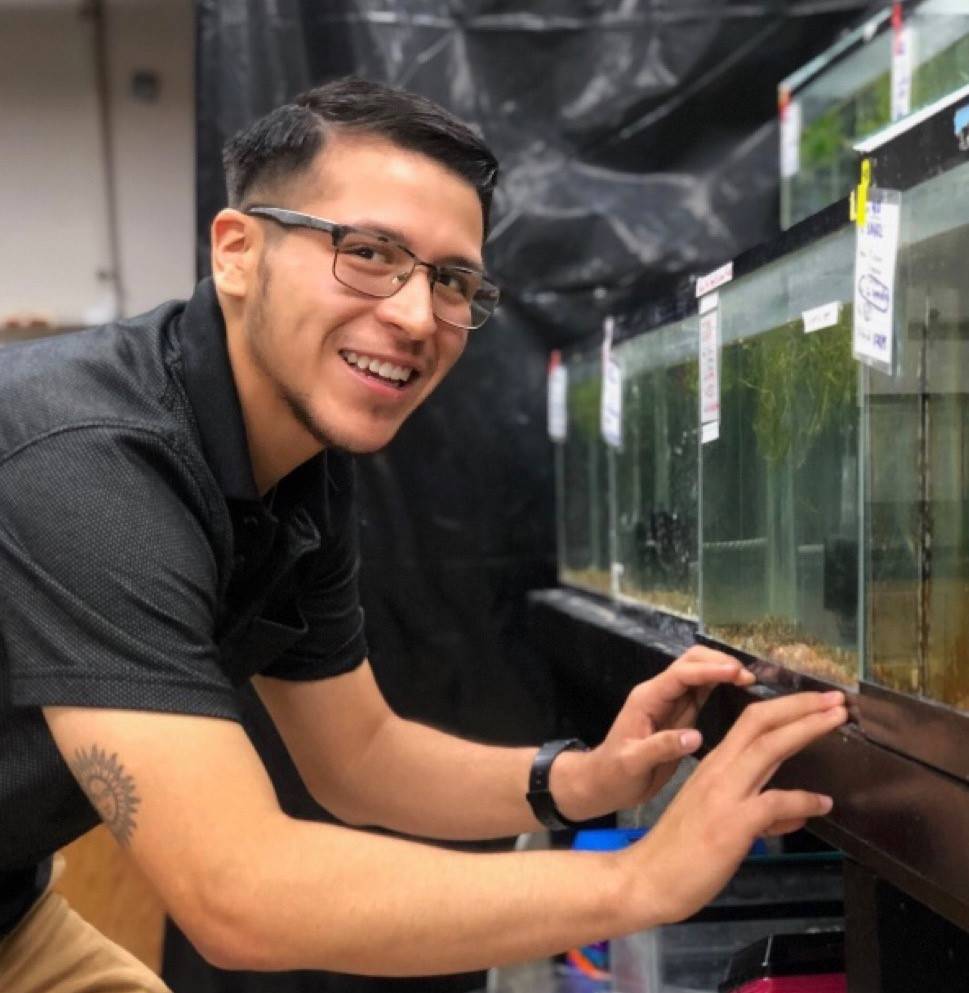Alex Guzman Selected as an NSF GRFP Awardee

The Graduate College is delighted to announce that Alex Guzman has been selected as an awardee in the 2020 National Science Foundation (NSF) Graduate Research Fellowship Program (GRFP) competition! The NSF GRFP recognizes and supports outstanding graduate students in STEM and NSF-supported social science disciplines who are pursuing research-based master’s and doctoral degrees. Fellows receive an annual stipend of $34,000 and full tuition and fees for up to three years.
Alex applied for the GRFP while still an undergraduate at Texas State. He currently is pursuing a Master of Science in population and conservation biology under the supervision of Dr. Chris Nice. He completed his Bachelor of Science in biology from Texas State in August 2020 with a major in wildlife biology and a minor in business administration. An Undergraduate Research Fellowship (URF) recipient, Alex was a member of the 2019 STEM Undergraduate Research Experience (SURE) program cohort and is a recipient of the TXST Department of Biology’s Francis Rose Undergraduate Research Award. He was also a member of a select group of diverse undergraduates invited to attend—with full funding—the 2019 Annual Conference to Increase Diversity in Mathematical Modeling and Public Health, hosted by the Center for Communicable Disease Dynamics at Harvard T.H. Chan School of Public Health.
Motivated by an interest in human biology, Alex began his undergraduate career with a pre-dental concentration, later switching his focus from the biology of human health to the biology of ecological health and conservation physiology to study the biological impact of human behavior on various organisms. It was through Alex’s research for his SURE program project, “The Effects of Urbanization on Life-history traits in Gambusia affinis,” advised by Dr. Caitlin Gabor, that the process of conducting scientific research was introduced as a viable career path.
Currently, Alex’s research examines local water samples for endocrine disrupters—chemical compounds that can disrupt the body’s hormonal systems and cause numerous health problems—by analyzing the biological chemistry of Gambusia affinis, a small fish native to Texas, commonly known as the western mosquitofish. Gambusia acts as an indicator species, providing insights about the ecological health of local environments and the toxins present within it. Alex’s work highlights the importance of biological and ecological diversity, and he hopes it broadly demonstrates the need for funding eco-toxicology research.
The GRFP application asks applicants to consider the ways receiving the fellowship would contribute to broad societal impacts, as individuals, and through the applicants’ research projects. Having been raised in a Hispanic household, Alex reflected on the importance of bringing “people from the margins” into the sciences during the process of applying for the GRFP— women, LGBTQiA individuals, and members from other underrepresented communities. To anyone interested in this award, Alex enthusiastically and supportively declares, “don’t talk yourself out of applying!”